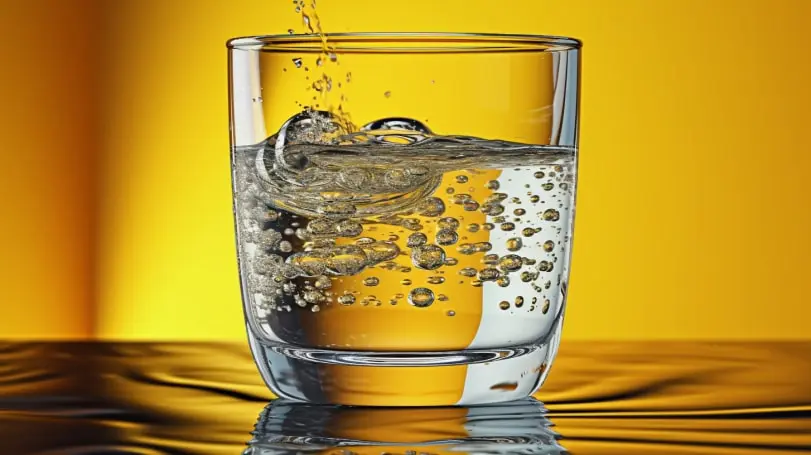Can Sprite Cause Uti?
Urinary tract infections (UTIs) are a common health concern that affects many individuals worldwide.
While most UTIs are not life-threatening, they can cause significant discomfort and pain. The causes of UTIs can vary, ranging from bacterial infections to lifestyle habits that increase the risk of infection.
One myth about the causes of UTIs is that drinking soda, particularly Sprite, can lead to an increased risk of developing a UTI.
However, this claim has been met with skepticism by medical professionals who argue that there is no scientific evidence linking Sprite consumption to UTI development.
In this article, we will explore the potential causes of UTIs and examine whether or not there is any truth to the belief that Sprite consumption can contribute to their development.
Additionally, we will discuss other factors that may influence one’s susceptibility to developing a UTI and provide tips for preventing and managing these infections.
Key Takeaways
- There is no scientific evidence that drinking Sprite or carbonated beverages cause UTIs.
- UTIs are bacterial infections that are more common in women than men and can be caused by a variety of factors including E. coli, sexual activity, pregnancy, menopause, catheter use, kidney stones, diabetes, and weakened immune system.
- Symptoms of UTIs include strong urge to urinate, burning during urination, cloudy or dark urine, and pelvic pain.
- Good hygiene habits, proper hydration, and urinating before and after sexual activity can help prevent UTIs. Antibiotics are the first line of defense against UTIs, but natural remedies and self-care measures can also provide relief.
Understanding Urinary Tract Infections (UTIs)
Urinary tract infections (UTIs) are common bacterial infections that can affect anyone, but they are more prevalent in women than men.
UTIs typically occur when bacteria from the rectum or vagina enter the urinary tract and multiply, leading to an infection.

The most common symptoms of UTIs include a strong urge to urinate, burning sensation during urination, cloudy or dark urine, and pelvic pain.
If left untreated, UTIs can spread to other parts of the body and cause severe health complications.
Prevention techniques for UTIs involve maintaining good hygiene practices such as wiping front to back after using the restroom and washing your genital area before and after sexual activity.
Drinking plenty of water and avoiding drinks that can irritate the bladder like coffee, alcohol, or soda is also essential in preventing UTIs.
Additionally, urinating frequently helps flush out bacteria from the urinary tract before it has a chance to develop into an infection.
People with recurrent UTIs may need antibiotics prescribed by their healthcare provider or other medical treatments recommended by a specialist.
Common Causes of UTIs
One of the most prevalent risk factors for developing a urinary tract infection is the presence of bacteria in the bladder, much like how weeds can proliferate in a fertile garden bed.
The bacteria that cause UTIs are usually Escherichia coli (E. coli), which normally live in the intestines and anus, but can enter the urethra and travel up to the bladder.

Other common causes of UTIs include sexual activity, pregnancy, menopause, catheter use, kidney stones, diabetes, and weakened immune system.
To prevent UTIs from occurring or worsening, there are several tips that individuals should follow.
Firstly, it is important to drink plenty of water to help flush out harmful bacteria from the urinary system.
Secondly, practicing good hygiene habits such as wiping front to back after using the bathroom can help prevent E.coli from entering the urethra.
Thirdly, urinating before and after sexual activity can also help decrease your risk of getting a UTI by flushing out any bacteria that may have entered during intercourse.
Recognizing early symptoms such as burning while urinating or frequent urination and seeking medical attention promptly can also help prevent complications associated with UTIs such as kidney infections or sepsis.
Debunking the Myth: Can Sprite Really Cause UTIs?
The short answer is no as there is no scientific evidence to suggest that drinking Sprite or any other carbonated beverage directly causes UTIs.
UTIs are caused by bacteria entering the urinary tract, typically through the urethra.

While certain behaviors and dietary habits can increase one’s risk of developing a UTI, there is no direct link between consuming Sprite and contracting an infection.
It is important not to spread misinformation about supposed causes of UTIs, as this can lead to unnecessary anxiety and fear among individuals who may enjoy certain foods or beverages.
Busting myths and clarifying misconceptions surrounding UTIs can help promote accurate information and ultimately improve public health outcomes.
The Role of Diet in UTI Prevention
Contrary to popular belief, the consumption of certain foods and beverages can play a significant role in reducing the risk of developing urinary tract infections.
A healthy diet rich in fruits, vegetables, whole grains, and lean proteins can help keep your bladder and urinary tract healthy by providing essential nutrients that support immune function.

Additionally, staying well-hydrated is important for preventing UTIs as it helps flush bacteria out of the urinary system.
In addition to a healthy diet and hydration, probiotic supplements and cranberry juice have also been studied for their potential to prevent UTIs.
Probiotics are beneficial bacteria that live in our gut and vaginal microbiome and can help maintain a healthy balance of good bacteria in these areas.
Cranberry juice has long been thought to prevent UTIs by preventing bacteria from attaching to the walls of the bladder.
While research on both probiotics and cranberry juice is ongoing, incorporating these options into your overall approach to UTI prevention may be worth considering.
Lifestyle Habits for Reducing UTI Risk
Adopting healthy lifestyle habits can significantly reduce the risk of developing urinary tract infections, providing a sense of control and empowerment over one’s own health. Here are some tips to consider:
- Practice good hygiene: Always wipe from front to back after using the toilet to prevent bacteria from entering the urethra.
- Stay hydrated: Drinking plenty of water helps flush out bacteria in the urinary tract.
- Kegel exercises: These exercises strengthen the pelvic floor muscles and improve bladder control, reducing the likelihood of urine retention and UTIs.
- Wear breathable clothing: Tight-fitting clothes trap moisture and promote bacterial growth, so opt for loose-fitting cotton underwear and pants.
Additionally, it is important to avoid holding urine for prolonged periods as this can lead to bacterial growth in the bladder.
Treating and Managing UTIs
Effective management of urinary tract infections involves implementing appropriate treatment methods to alleviate symptoms and prevent the spread of infection.
The first line of defense against UTIs is typically antibiotics, which are prescribed based on the type and severity of the infection.

It is important to complete the full course of antibiotics as prescribed by a healthcare provider, even if symptoms improve before finishing the medication.
Failure to do so could result in a recurrence or development of antibiotic-resistant bacteria.
In addition to antibiotics, there are also preventive measures that can be taken to reduce the risk of developing UTIs.
Drinking plenty of water, urinating frequently and completely, wiping from front to back after using the bathroom, avoiding tight-fitting clothing and synthetic fabrics that trap moisture around the genital area, and cleaning genitals regularly before and after sexual activity are all ways to decrease bacterial growth in the urinary tract.
Some individuals may also find relief from natural remedies such as cranberry supplements or probiotics; however, it is important for individuals with UTI symptoms to seek medical attention for proper diagnosis and treatment.
When to Seek Medical Attention for UTIs
Recognizing the signs and symptoms of a urinary tract infection (UTI) is crucial in determining when to seek medical attention.
Some common UTI symptoms include frequent urination, pain or burning sensation during urination, cloudy or strong-smelling urine, and pain or pressure in the lower abdomen.

It is important to note that not all individuals with UTIs experience these symptoms and some may only have mild ones.
If left untreated, UTIs can lead to complications such as kidney infections or even sepsis.
Therefore, it is important to seek medical attention if any UTI symptoms are present.
However, there are also self-care measures that can be taken to prevent UTIs from occurring such as drinking plenty of water, wiping from front to back after using the bathroom, and avoiding harsh soaps or feminine hygiene products.
By recognizing the signs and symptoms of UTIs and implementing prevention methods through self-care practices, individuals can reduce their risk of experiencing complications related to this common condition.
Frequently Asked Questions
What is the best way to prevent UTIs?
To prevent UTIs, individuals can take preventive measures such as urinating after sex, wiping from front to back, and staying hydrated. Lifestyle changes such as avoiding irritating hygiene products and wearing loose-fitting clothing may also be beneficial.
Can drinking cranberry juice prevent UTIs?
Cranberry supplements have been found to offer benefits in reducing the occurrence of UTIs. While cranberry juice may also provide this benefit, it contains high levels of sugar which can be detrimental to overall health. It is recommended to opt for cranberry supplements over juice.
Is it safe to treat UTIs with home remedies?
The effectiveness of natural remedies for treating UTIs has not been scientifically proven. While some remedies may provide temporary relief, they should not be used as a substitute for medical treatment. Consult with a healthcare professional before attempting any home remedy.
Can UTIs be sexually transmitted?
Can UTIs be sexually transmitted? Yes, sexual intercourse is a common cause of UTIs in women. Men can also get UTIs, but it’s less common. Pregnant women are at a higher risk of developing UTIs and should seek prompt medical attention if they experience symptoms.
How long does it typically take for UTI symptoms to go away with treatment?
The duration of UTI treatment varies depending on the severity and type of infection. Typically, symptoms improve within 1-2 days of starting antibiotics, with complete resolution in 3-7 days. However, antibiotic resistance may prolong treatment.
Conclusion
While there are many factors that contribute to the development of UTIs, it is important to understand the myths and misconceptions surrounding this condition. One such myth is whether Sprite can cause UTIs.
Research shows no evidence to support the claim that drinking Sprite or any other carbonated drink can directly cause UTIs.
However, certain lifestyle habits such as poor hygiene practices, holding urine for extended periods of time, or not drinking enough water can increase the risk of developing a UTI.
It is essential to maintain good hygiene practices and follow healthy lifestyle habits to prevent UTIs.
The role of diet in preventing and managing UTIs cannot be overstated, but it is also necessary to practice good hygiene habits and follow healthy lifestyle practices.
Seeking medical attention when symptoms arise will ensure proper treatment and management of a UTI.
Overall, understanding these factors will help individuals reduce their risk of developing a urinary tract infection and lead a healthier life.


